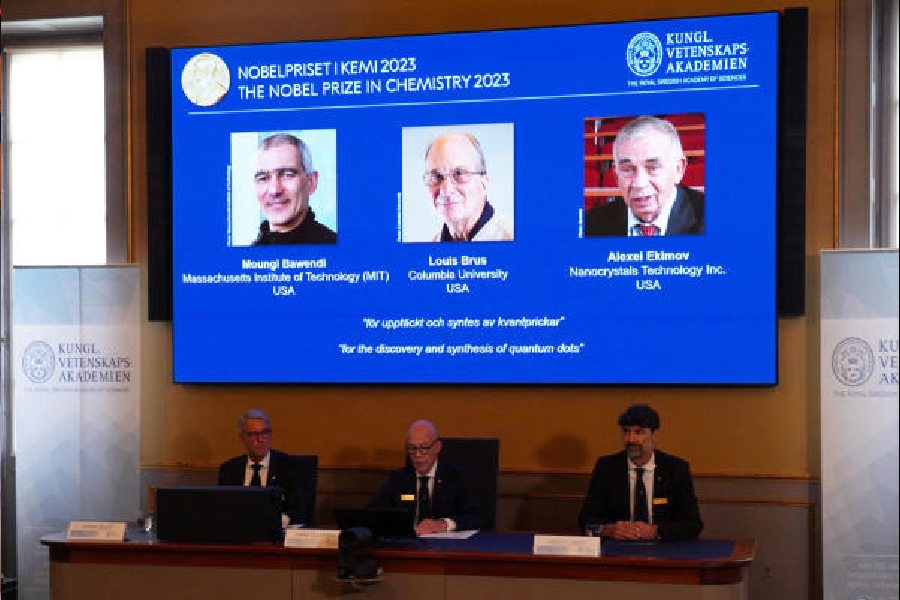The Nobel Prize in chemistry was awarded Wednesday to Moungi G. Bawendi, Louis E. Brus and Alexei I. Ekimov for the discovery and development of quantum dots, nanoparticles so small that their size determines their properties.
Quantum dots, described by the Royal Swedish Academy of Sciences as the “smallest components of nanotechnology”, are used in LED lights and television screens and can help guide surgeons as they remove cancer tissue.
“For a long time, nobody thought you could ever actually make such small particles,” Johan Aqvist, the chair of the Academy’s Nobel committee for chemistry, said at a news conference announcing the 2023 laureates. Presenting the topic with five colourful flasks lined up in front of him that he said contained quantum dots in a liquid solution, he said: “But this year’s laureates succeeded.”
The news of the laureates’ expected win had been reported earlier on Wednesday morning in the Swedish news media, a highly unusual leak that was then reported by Reuters and The Associated Press several hours before the official announcement by the Royal Swedish Academy of Sciences, which awards the prize.
The Swedish news outlets cited what they said was an email from the academy that had been mistakenly sent early. Reuters quoted Aqvist as saying, “It is a mistake by the Royal Swedish Academy of Sciences.” He noted that the committee’s meeting was due to start at 9:30am (local time)and added, “So no decision has been made yet. The winners have not been selected.”
Bawendi is an MIT professor, Brus is a professor emeritus at Columbia University and Ekimov works for Nanocrystals Technology, a company based in New York state.
The recipients have all been pioneers in exploring the nanoworld — in which the size of the matter is measured in millionths of a millimetre, the committee said. Their work allowed humanity to use some of the peculiar properties of the nanoworld, they said.
In the early 1980s, Brus and Ekimov created quantum dots independently of each other. In 1993, Bawendi revolutionised the methods for manufacturing quantum dots, making their quality “extremely high” — a vital prerequisite for their use in today’s nanotechnology, the committee said.
For quantum dots to be highly useful, Aqvist said, they must be made in a solution “with exquisite control of their size and surface.” Bawendi, he said, invented an ingenuous chemical method “for doing just this”.
“He could now make perfect nanoparticles of very specific size and very high quality,” Aqvist said. “These achievements represent an important milestone in nanotechnology,” Aqvist said.

